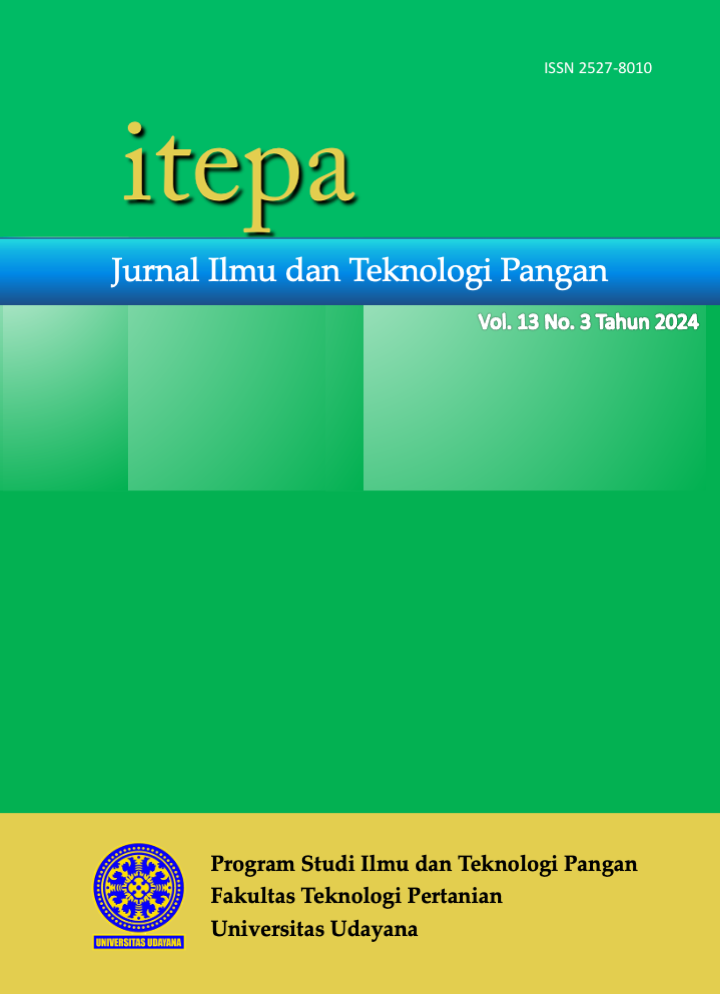Karakteristik Tepung Singkong (Manihot esculenta) Termodifikasi Menggunakan Isolat Lactobacillus rhamnosus SKG 34
Abstract
In food product applications, cassava flour has the disadvantage of forming an unsatisfactory gel, weak water holding capacity, and low amylose content, so the cassava flour needs to be modified. The aim of this study is to investigate the effect of the fermentation duration with the Lactobacillus rhamnosus SKG 34 isolate on the characteristics of modified cassava flour and to determine the fermentation duration that can yield modified cassava flour with optimal characteristics. The research utilized Completely Randomized Design (CRD) with six fermentation treatments: without fermentation, 15 hours, 30 hours, 45 hours, 60 hours, and 75 hour, each replicated three times, resulting in 18 units of experimentation. The collected data were analyzed using ANOVA and in case where the treatments showed a significant impact on the observed variables (P < 0.05), the Duncan Multiple Range Test (DMRT) was applied. The results indicated that fermentation duration significantly affected the pH value, moisture content, starch content, amylose content, color brightness, solubility, swelling power, and water absorption capacity (WAC) of modified cassava flour. A fermentation duration of 75 hours produced modified cassava flour with the best characteristics, including a yield of 32.24 percent, pH value of 4.92, moisture content of 5.16 percent, starch content of 69.73 percent, amylose content of 42.91 percent, color brightness of 80.6, solubility value of 85.66 percent, swelling power value of 9.68 (g/g), and water absorption capacity of 16.36 (g/g).
Keywords: cassava, fermentation time, modified cassava flour, Lactobacillus rhamnosus SKG 34





